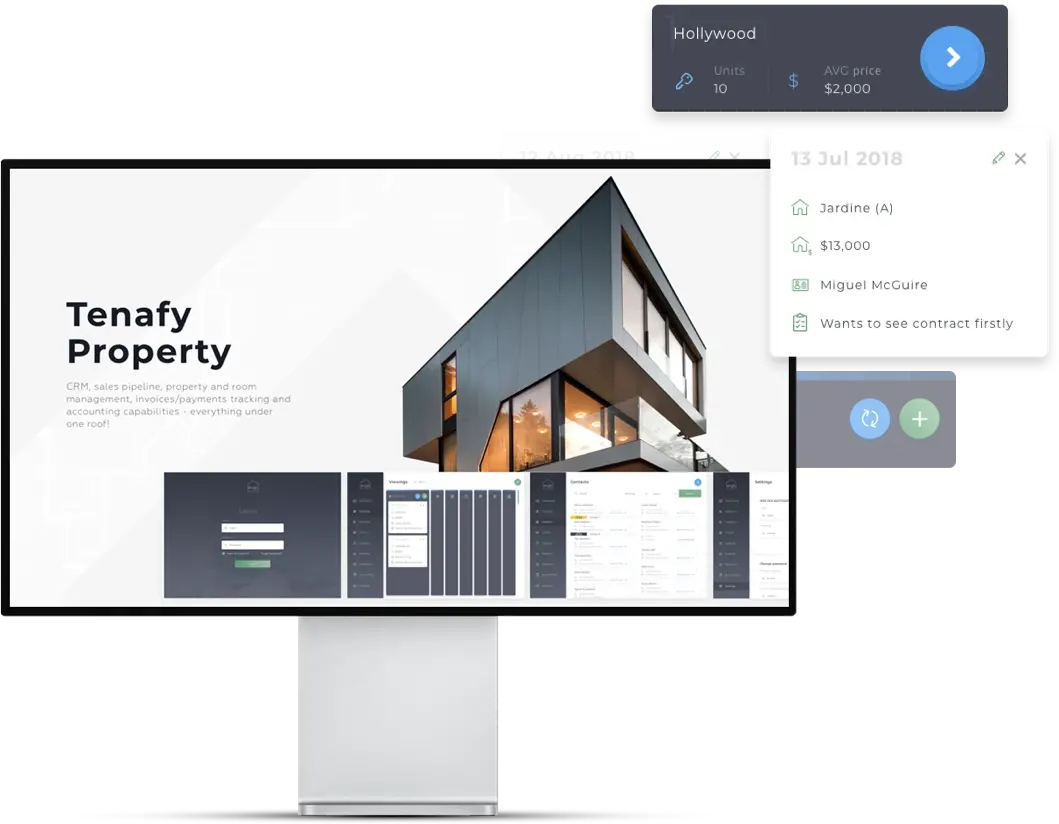The global pandemic has finally loosened its grip on humankind, and the world economy is beginning to recover little by little. One of the telltale signs of the return to normalcy is the growth of the construction industry, which is called to become a locomotive for business revival on a global scale for a decade to come.
In the USA alone, spending in the sector exceeded $1.6 trillion last year and is going to progress exponentially.
In the age of Industry 4.0, such spectacular numbers would be impossible without harnessing construction apps and other software that are robustly pushing their way into the domain. Within the next five years, revenues in this IT niche are expected to display a steady, if undramatic, CAGR of 3.31%, with the market volume exceeding $11 billion by 2027. And construction software solutions vendors have an ample customer audience to cater to.
According to estimates, in 2020, over 92% of employees in the construction realm used smartphones, and 65% leveraged tablets to handle their responsibilities. However, less than a quarter of building firms rely on digital instruments heavily, where over half a dozen construction management apps are used in their shop floor operations. Evidently, there is a considerable growth space in this realm for enterprises that should have a digitalization strategy in place and integrate an app into their internal workflow. What boons does the onboarding of this software promise to construction organizations?
Discover how generative AI is reshaping construction
Benefits of Launching an App for Construction Companies
Harnessing mobile technologies is extremely advantageous for players in the construction industry because it:
- Enables collecting and sending information in real-time to monitor routine operations.
- Reinforces the company’s current digital environment (like ERP systems).
- Facilitates communication between all stakeholders of the construction process.
- Promotes collaboration among departments, especially between teams in the field and at the office, concerning materials, equipment, schedules, deficiencies, incidents, etc.
- Improves relationships with customers by bolstering transparency via photo- and video-sharing capabilities.
- Eliminates paperwork and thus streamlines work with documents. Construction organizations deal with a large number of permits, certificates, and other records and dossiers, such as plan clarifications, work orders, building code references, etc. By transferring them into digital format in construction project management apps, companies step up back-office efficiency and facilitate handling red tape.
- Enhances accountability since reports, time stamps, signatures, and GPS data captured by apps serve as an audit trail to be used as evidence in case a legal dispute arises.
- Directs jobs to the closest employees thanks to the GPS functionality.
- Simplifies managing and tracking equipment use via a feature allowing the personnel to log equipment hours and monitor its maintenance and locations.
- Boosts safety since an app for construction workers can issue alarms, register incidents, furnish training materials (even videos), and perform other errands prescribed by safety inspection checklists.
- Rules out errors and augments accuracy due to the minimization of the human factor in all workflow operations.
- Empowers integration with hardware and sensors, thus becoming a part of enterprise IoT solutions.
To make the most of these assets, you should select the proper feature roster for your app.
Functionalities to Make a Construction App a Success
Our long-time experience in providing app development services allows us to recommend the following features for a construction app.
- Support of one or both of the two major operating systems (Android and iOS).
- A professional-looking user interface.
- A customizable dashboard.
- Robust reporting capabilities.
- File sharing and project implementation tracking to keep employees in the office and on the field on the same page.
- Powerful communication channels to streamline coordination within the personnel or between the employees and customers.
- Budget management tools that enable processing transaction details, performing estimates, and obtaining forecasts.
- Real-time information exchange is the bedrock of apps for construction management aimed at the facilitation of the pipeline. Thanks to it, stakeholders can log field reports, fill out forms, attach images, enter timesheets, and more.
- Strong security to protect sensitive or financial data from unauthorized access.
These are the core features that are a must-have for any construction app. Yet, the complete list of functionalities is greatly conditioned by the type of solution.
Zooming in on Construction App Types
Before embarking on the production of an application for a construction organization, you should realize what you are going to utilize it for.
Construction Management App
This is the most widespread and, at the same time, multifunctional app type in the niche instrumental for construction managers, architects, contractors (both general and specialty), manufacturers of building materials, and other stakeholders of the industry. As a rule, such solutions have the broadest range of features related to all stages of the construction lifecycle, namely:
- Inbuilt CRM
- Real-time assignment generation, prioritization, and allocation
- Construction site activity and progress monitoring
- Electronic signatures
- Time tracking
- Productivity assessment and reporting
- Inspection and checklist templates
- Viewing and sharing drawings and blueprints
- Specifications, permits, contracts, and other documents
- Project planning and scheduling
- Management of logistical chains
- Communication tools
- Deficiency lists
- Tracking of assets and materials
- Purchase orders and bills
- Online payment and payroll processing
- Budget and cost management
- Integration with accounting tools and financial reporting
- Customer invoicing
- Warranty requests
Tenafy Case Study: Streamlining Property Management Digitally

Construction Delivery Apps
Such solutions are called to streamline and promote the delivery of construction equipment and materials. Their basic functionalities include:
- Product and brand search
- Price comparison capability
- Choice of products and delivery scheduling
- Multiple payment options (card, e-wallets, e-banking)
- GPS-fueled real-time order tracking
Computer-Aided Design (CAD), Drawings, and Collaboration Apps
Efficient collaboration can be a game-changer for the construction industry. Realizing this truth, about two-thirds of IT startups in the domain prioritize such an app type in their development endeavors. As a rule, these solutions provide users with the ability to:
- Communicate with other personnel
- Notify them of the changes
- Share photos, forms, reports, notes, and construction plans
- Compare drawings and blueprints
- Access submittals, specifications, RFIs, and other construction documents
- Track revisions
- Filter and search by keywords
Construction Estimators and Calculators
Cost is oftentimes a determinant factor in deciding whether a construction project should be implemented, and the app can render essential help in:
- Executing standard trigonometric functions and construction calculations.
- Forecasting the amount of materials (concrete, bricks, tiles, insulant for walls, etc.) you will need for a certain building.
- Doing roof framing calculations, including the amount of timber and other staples.
- Performing other operations related to measurement and calculation (for instance, not only gauging the amount of paint you will need for a certain space within a building but also selecting suitable colors from the collections offered by manufacturers).
Construction Site Auditing Apps
These will be in high demand by inspectors who conduct audits and quality checks during which they detect defects, make punch lists, assess risks, etc. App functions that they badly need comprise:
- Adding photos and descriptions of what they discover.
- Organizing and managing their findings and then sharing them with workers.
- Generating customizable Excel- and PDF-format reports.
- Uploading inspection results to Google Drive or Dropbox and emailing reports anywhere they find necessary.
Armed with the awareness of the functions your construction app will require, you can get to its creation hammer and tongs.
How to Develop a Construction App: A Roadmap to Follow
Having multiple completed mobile app projects under our belt, we at Requestum have come up with an efficient algorithm for app development that covers such steps.
1. Research and Requirements Prioritization
The first thing you should do is to identify the ultimate purpose of the app and define the scope of problems it is going to solve. Ideally, these should be aligned with the business needs of your organization.
2. Feature List Finalization
The use cases of the app established at the discovery phase serve as guidelines for deciding upon the roster of features your app will have.
3. Tech Stack Selection
Knowing what you are going to build, you are ready to choose tools to utilize in the process. It means not only technologies leveraged for app development but also the solution platform (Android, iOS, or hybrid), architecture, dependencies, and integrations of the future product.
4. Team Formation
The composition of the development crew depends on the project's scope and complexity. The minimal team contains a project manager, a back-end specialist, a UI/UX designer, an Android or iOS expert, and a QA engineer. It can be expanded if this number is inadequate for handling tasks they face.
5. Collaboration and Project Management Methodology Selection
Without robust communication of stakeholders, any project is doomed to defeat. So you must determine interaction channels project crew and customers are comfortable with and schedule sessions for reporting and discussing the development landmarks. Besides, you should pick the methodology (Waterfall or Agile) for developing the app.
Let’s solve your challenges with innovative software
6. Cost Assessment
Now that you know who, what, and how much you will need to build your app, you can gauge the cost of the endeavor and realize whether it matches the size of your wallet.
7. Development Proper
When all preparatory work is done, you can code away. As a rule, this is the longest phase of any IT project because you build an MVP first to see if your concept holds water and only then implement it on a larger scale.
8. Testing
As soon as the solution is ready, it should be thoroughly tested. The procedure is called to make sure the app operates according to expectations, and no bug handicaps its functioning.
9. Maintenance and Support
Even when the app is deployed, the development team can’t rest on its oars. Its performance should be monitored for at least a month to provide timely assistance or advice if users have some issues or questions as to its functioning.
As you see, building a construction app is a no-nonsense task that can be entrusted only to competent experts in software development. However, less than half of enterprises in the construction industry can afford to keep an IT department on their permanent payroll. As for small companies and cash-strapped startups in the sector, such a luxury is clearly beyond their means.
The only way out for such organizations is to outsource app development and partner with a team of seasoned professionals to do this job. Requestum has qualified specialists on its roster to implement a construction app project of any type and complexity and deliver a first-rate product within time and budget.
Conclusion
The construction industry is slowly reviving after the onslaught of the global plague, and its growth can be considerably bolstered if companies in the realm onboard specialized software. By implementing construction mobile apps into their day-to-day practices, building organizations will be able to increase their efficiency and streamline pipeline operations, thus taking overall productivity to a new level.

Our team is dedicated to delivering high-quality services and achieving results that exceed clients' expectations. Let’s discuss how we can help your business succeed.




SHARE: